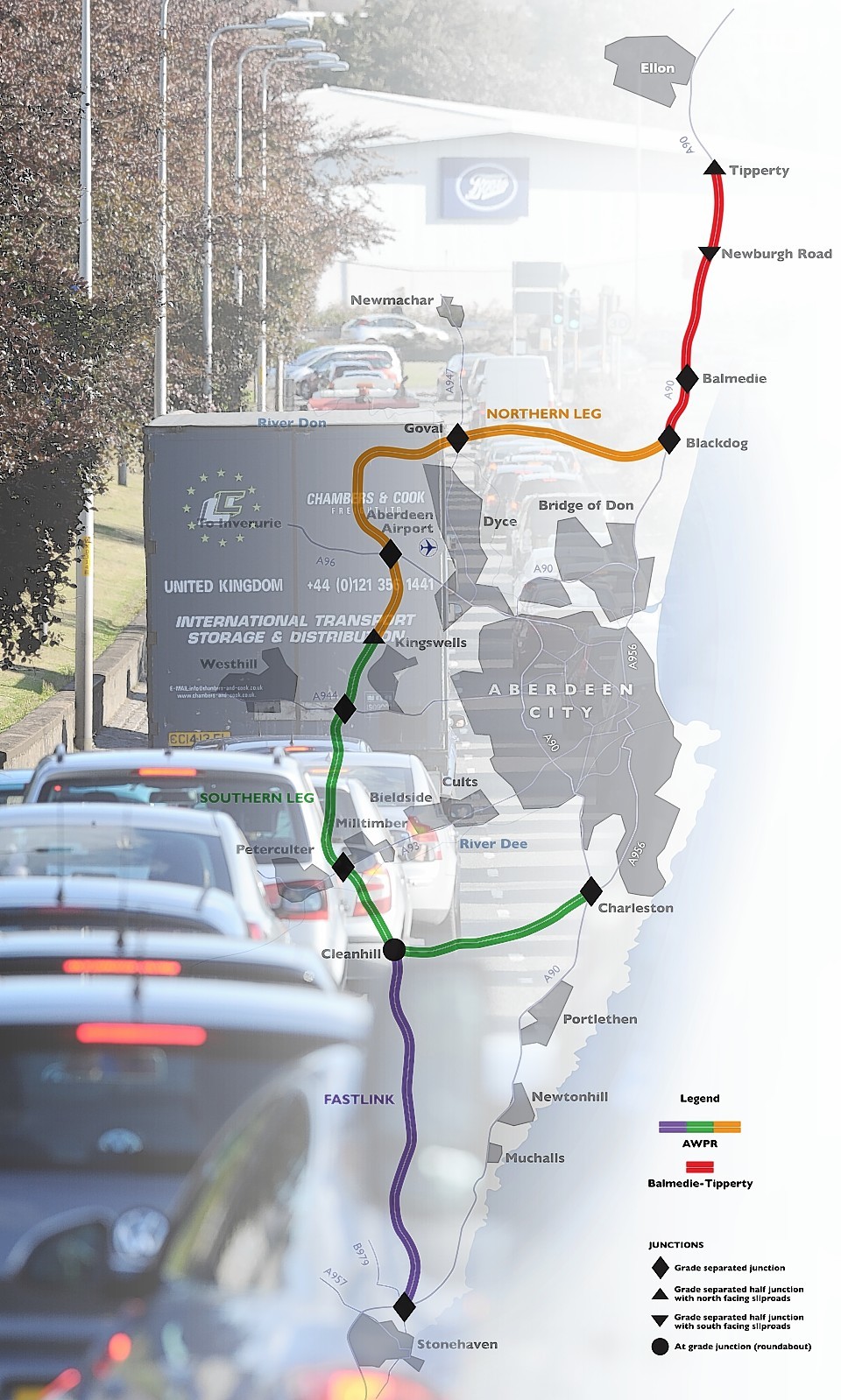One of the firms in the consortium expected to build the £750million Aberdeen bypass has revealed a £75million shortfall in its construction arm.
Balfour Beatty further shocked investors with its third profits warning this year.
It also announced its chairman, former Railtrack boss Steve Marshall, was quitting the company he has run since the departure of chief executive Andrew McNaughton in May.
The triple blow led to the £10billion-a-year company’s shares plunging nearly 25%, wiping hundreds of millions of pounds off its market value.
Balfour Beatty is part of the Connect Roads consortium, along with with Galliford Try (Morrison Construction) and Carillion, chosen as preferred bidder to deliver the 28-mile Aberdeen Western Peripheral Route.
A spokesman for Balfour Beatty insisted the London company’s current construction troubles would have no impact whatsoever on its role in building the bypass.
The firm has hired accountancy giant KPMG to review activities in the division following losses and write-downs across a number of contracts.
Nearly half of the £75million shortfall in UK construction stems from Balfour’s engineering services operation, which has been impacted by design changes, project delays, rework on projects and contractual disputes.
The division was also the subject of a £35million downgrade in July.
Balfour, which recently fought off a £3billion takeover by rival Carillion, said: “We have continued to experience programme slippage, resource and skills shortages, poor operational delivery and cost inflation pressures.
“The total number of problem contracts has increased to 25, from the 21 previously disclosed. Of these, 19 are due to reach operational completion in 2014.”
The troubled engineering services business has worked on projects including the aquatics centre at the London 2012 Olympics site.
It is experiencing difficulties in London, the south-west of England and Wales, and is taking steps to reduce its exposure in these areas, including through office closures.
Across the construction business Balfour is being more selective in the work it bids for, resulting in a lower order intake.
Apart from construction services, Balfour said current trading and full year expectations remained broadly in line with its expectations.
But Mr Marshall, who joined the board in 2005 and has been chairman since 2008, described yesterday’s trading statement from the company as “extremely disappointing”.
“There has been inconsistent operational delivery across some parts of the UK construction business and that is unacceptable,” Mr Marshall said, adding: “Restoring consistency will take time and it has our full focus.”
He plans to step down as chairman once a new chief executive is appointed and his own replacement identified.
